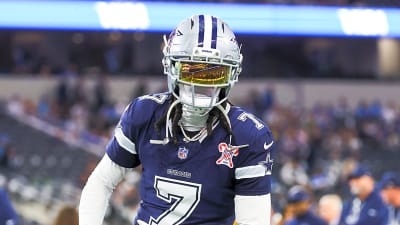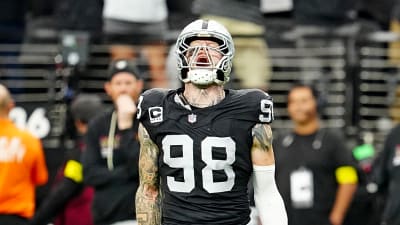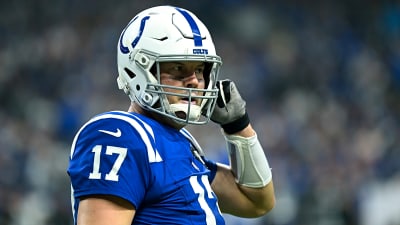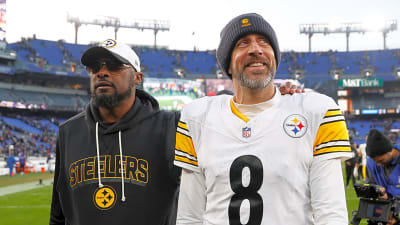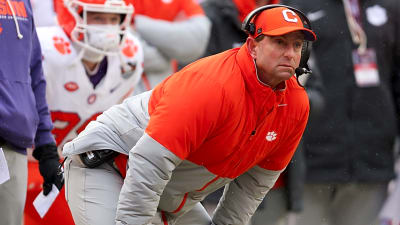
Dodgers doldrums prove why MLB salary cap isn't the answer
Remember the day: On Thursday, the Los Angeles Dodgers — with their $340.9M payroll — are second in the National League West, one game behind the San Diego Padres.
Screenshot that.
Owners and baseball executives inevitably will try gaslighting fans and players into believing a salary cap will cure Major League Baseball's competitive imbalance, but the free-spending Dodgers are struggling to stay atop their own division despite outspending every MLB team.
The Dodgers have spent 128 days in first this season, including off days, according to Baseball Reference. They held a nine-game division lead as recently as July 3. But a disastrous 10-14 July, followed by a 5-7 start to August, dropped them from first for the first time since April 27, underscoring the importance of their three-game home series against the Padres this weekend. (The Padres will host a series with the Dodgers from Aug. 23-25.)
Though FanGraphs still gives the Dodgers a 99.1% chance to make the playoffs and a 62% chance to win the division — a better chance than the NL West-leading Padres — the pressure is mounting on Los Angeles.
But this isn't about burying the Dodgers. It's about exposing the fundamental flaw in salary-cap logic: Money doesn't buy wins the way cap proponents claim.
A team can spend $340.9M, but money can't stop injuries. The Dodgers have 19 players on MLB's injured list. A hard cap treats symptoms while ignoring causes like injuries, roster construction and revenue structure.
Spending money can't stop Father Time. The Dodgers are the majors' fifth-oldest team, according to ESPN. With age comes diminished skills, regardless of a player's contract.
The prevailing narrative suggests small-market teams succeed by doing more with less. Teams such as the Cleveland Guardians, Athletics and Tampa Bay Rays have been celebrated for building contenders on relatively meager budgets. But none of those organizations has won a championship in the 21st century, and roster depth limitations caught up with each in the playoffs, when it mattered most.
MLB's Competitive Balance Tax punishes large-market teams like the Dodgers or New York Yankees for overspending, with tax money trickling down to smaller-market clubs. But those recipient teams are supposed to spend the money on payroll — instead, they usually often pocket it.
Even the Dodgers' biggest stars feel the pressure of their unexpected struggles. "Obviously, it doesn't feel good to fall into second place and to lose a lot of these games," Shohei Ohtani said through an interpreter, per MLB.com's Sonja Chen. "We're doing ... everything that we can to try to right the ship. We just have to do a better job."
There it is: the game's most expensive player, on the game's most expensive roster, admitting they're struggling despite all that spending power.
More aggressive luxury-tax penalties won't fix the problem. Small-market teams need a salary floor. MLB should require all teams to spend within 10% of the luxury tax threshold ($241M in 2025) to force true competitiveness.
A salary floor would hold owners accountable for investing in their product and force strategic decisions about trade-deadline acquisitions, knowing it might mean crossing the threshold and paying the tax.
The Dodgers' struggles demolish the salary-cap crowd's central premise: spending equals winning. If the team with the highest payroll in baseball can't buy wins, why would artificially limiting spending solve competitive imbalance?
A salary cap would create a ceiling preventing ambitious organizations from pursuing excellence while enabling cheap owners to hide behind artificial constraints.
So when salary-cap snake oil salesmen come calling, armed with tired talking points about competitive balance and "buying championships," remember Aug. 14, 2025. Remember the Dodgers' payroll and the team's second-place standing. Remember that baseball's beauty lies in its unpredictability.
The Dodgers prove what we should have known all along: You can't buy wins, only chances. And that's why baseball doesn't need a salary cap.
More must-reads:
- Yankees legend suffers major injury at team's Old-Timers' game
- Most overhyped prospect for every MLB team
- The 'MLB pitching Triple Crown winners' quiz
Breaking News
Trending News
Customize Your Newsletter
 +
+
Get the latest news and rumors, customized to your favorite sports and teams. Emailed daily. Always free!
